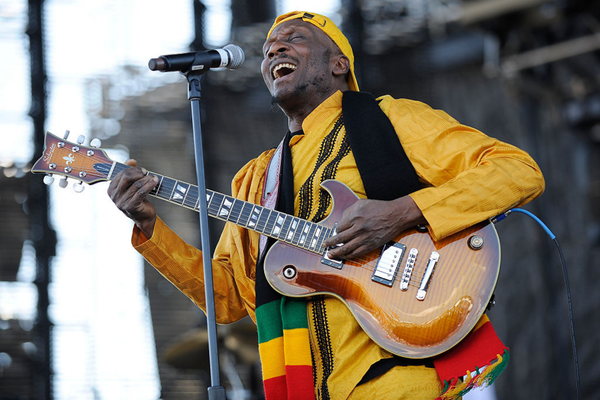Jimmy Cliff, one of reggae’s most transformative figures, has died at 81.
His wife, Latifa Chambers, shared the news on his official Instagram page. She said he passed away after complications from a seizure and pneumonia. Her announcement marked the end of a career that helped carry Jamaican music from Kingston dancehalls to stages across the world.
Chambers thanked fans, family, and colleagues who supported Cliff throughout his life. “I want to thank everyone who has shared in his legacy. To his fans across the globe, your unwavering support was a source of strength throughout his entire career,” she wrote alongside a photo of the artist. She also expressed gratitude for the medical team who cared for him. Additionally, she asked for privacy as the family mourns.
Cliff’s work shaped reggae’s evolution and global reach. With songs like “You Can Get It If You Really Want” and “The Harder They Come,” he helped define a sound that resonated far beyond Jamaica. His achievements earned him a place in the Rock and Roll Hall of Fame in 2010. He also received the Jamaican Order of Merit, one of the country’s highest honors.
Tributes poured in from across the Caribbean and beyond. Jamaican Prime Minister Andrew Holness wrote, “Jimmy Cliff was a true cultural giant whose music echoed the spirit of our nation around the world.” He credited Cliff with bringing joy during difficult moments. Additionally, he inspired national pride through the force of his work.
Fans responded with their own memories online. One message read, “An absolute legend, the soundtrack to my childhood. Big love, Jimmy!” Another added, “Honorable. Greatness personified. Rest in Powa. Sun Power.”
The Artist Behind the Music
Cliff’s influence extended into film, most notably through his role in the 1972 classic The Harder They Come, which introduced international audiences to both reggae and Jamaican storytelling. The film became a touchstone for artists exploring the connection between music, identity, and social change.
Born in rural Jamaica, Cliff began singing and writing songs as a teenager. He channeled themes of perseverance and determination into his music. His catalog became an anthem book for generations looking for hope, resolve, and a sense of belonging.
Though he is no longer here, his voice remains—still circulating through speakers, still shaping new artists. He continues carrying the energy of a man who believed music could move people toward something better. As his family reflects on his life, they invite fans to celebrate the work he left behind. They remember an artist whose songs bridged continents and lifted spirits across decades.







